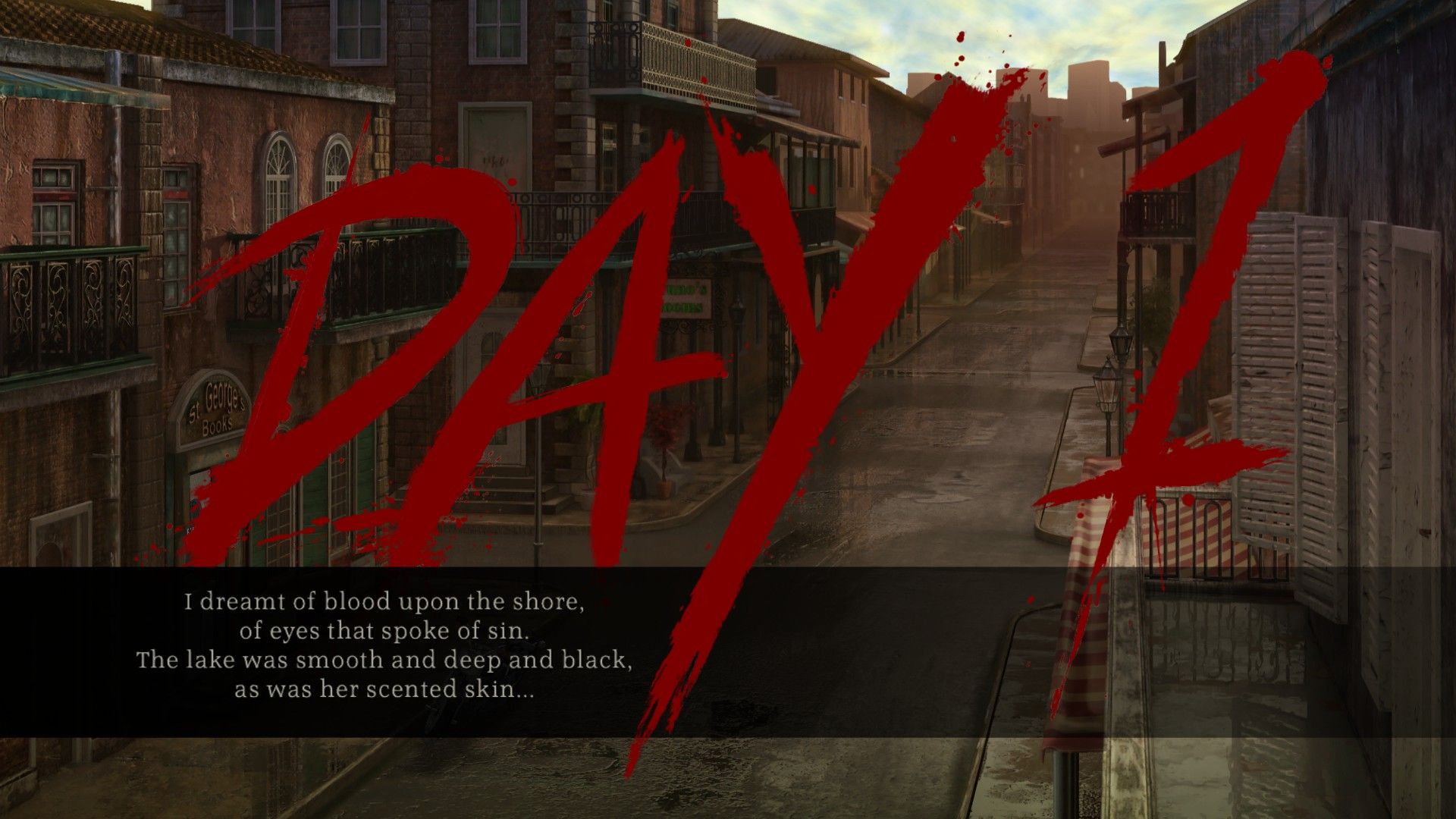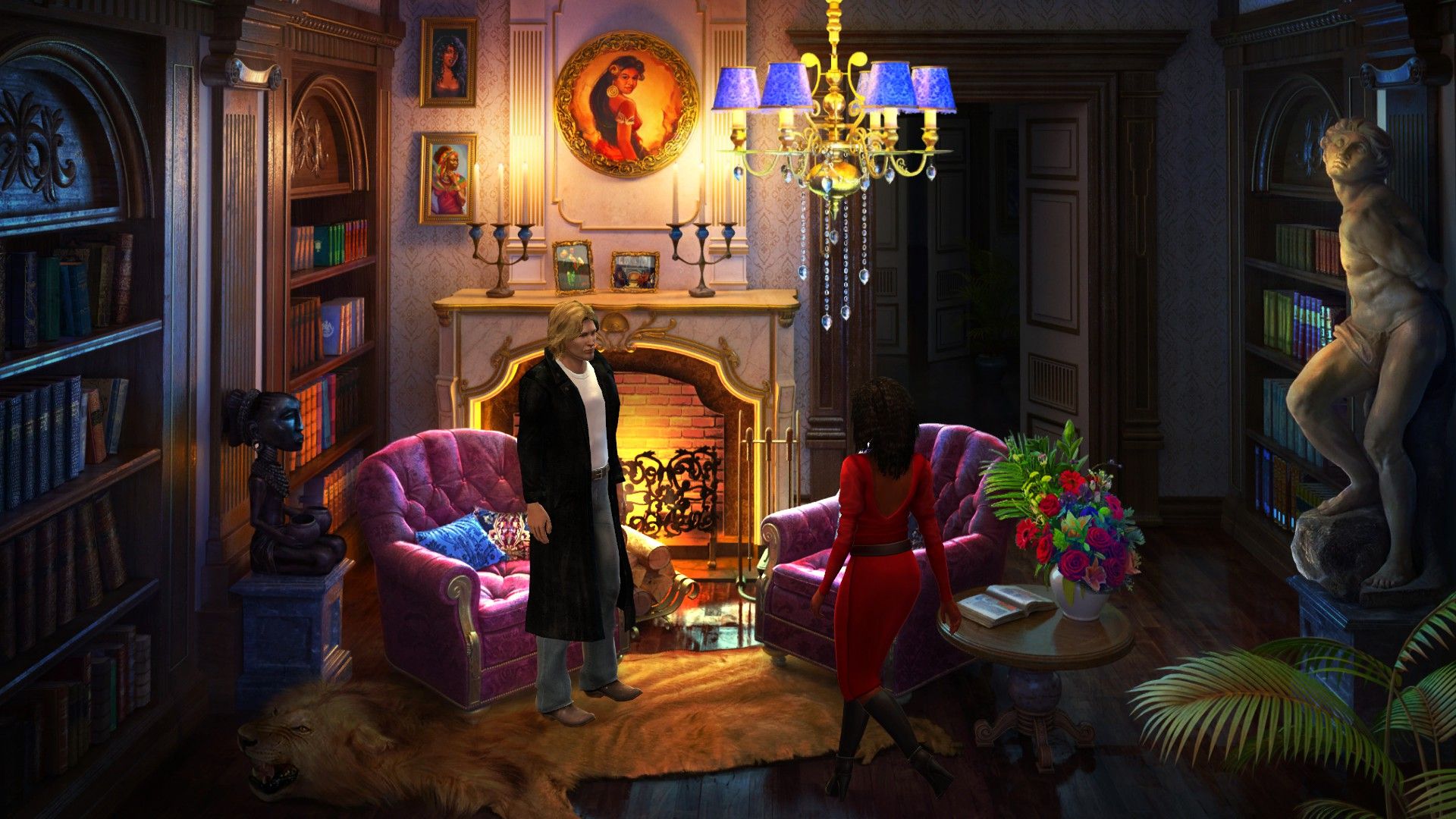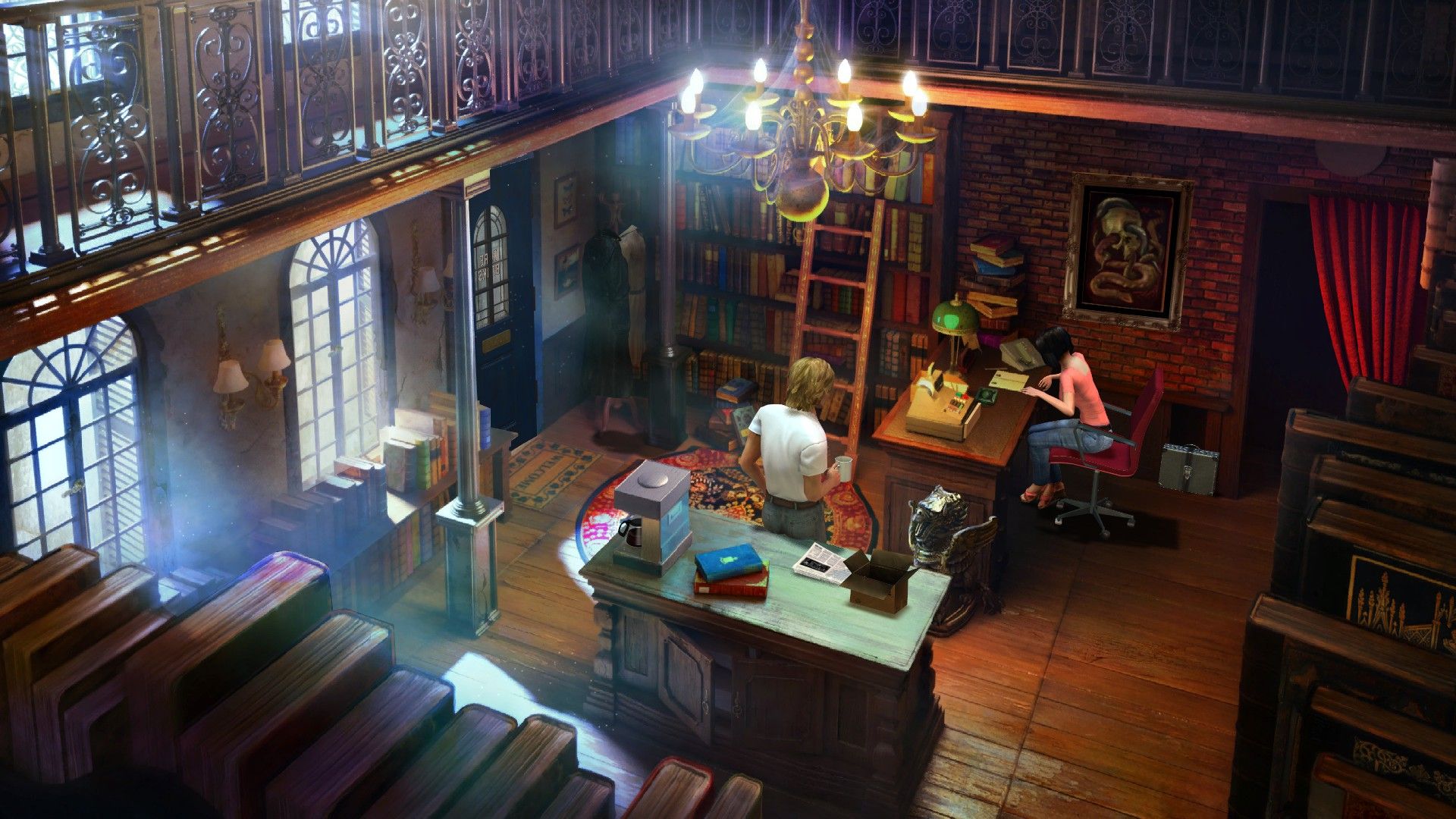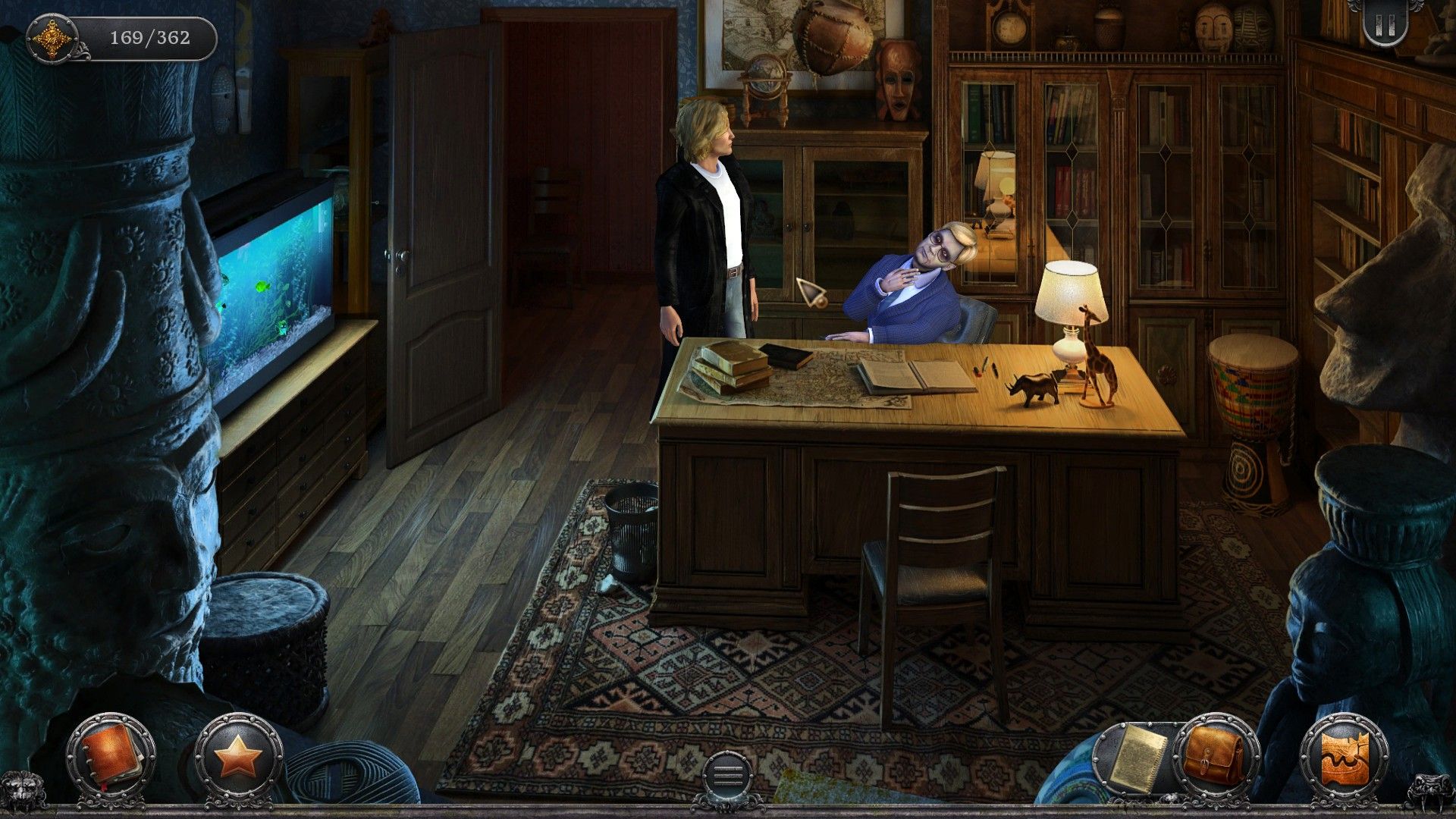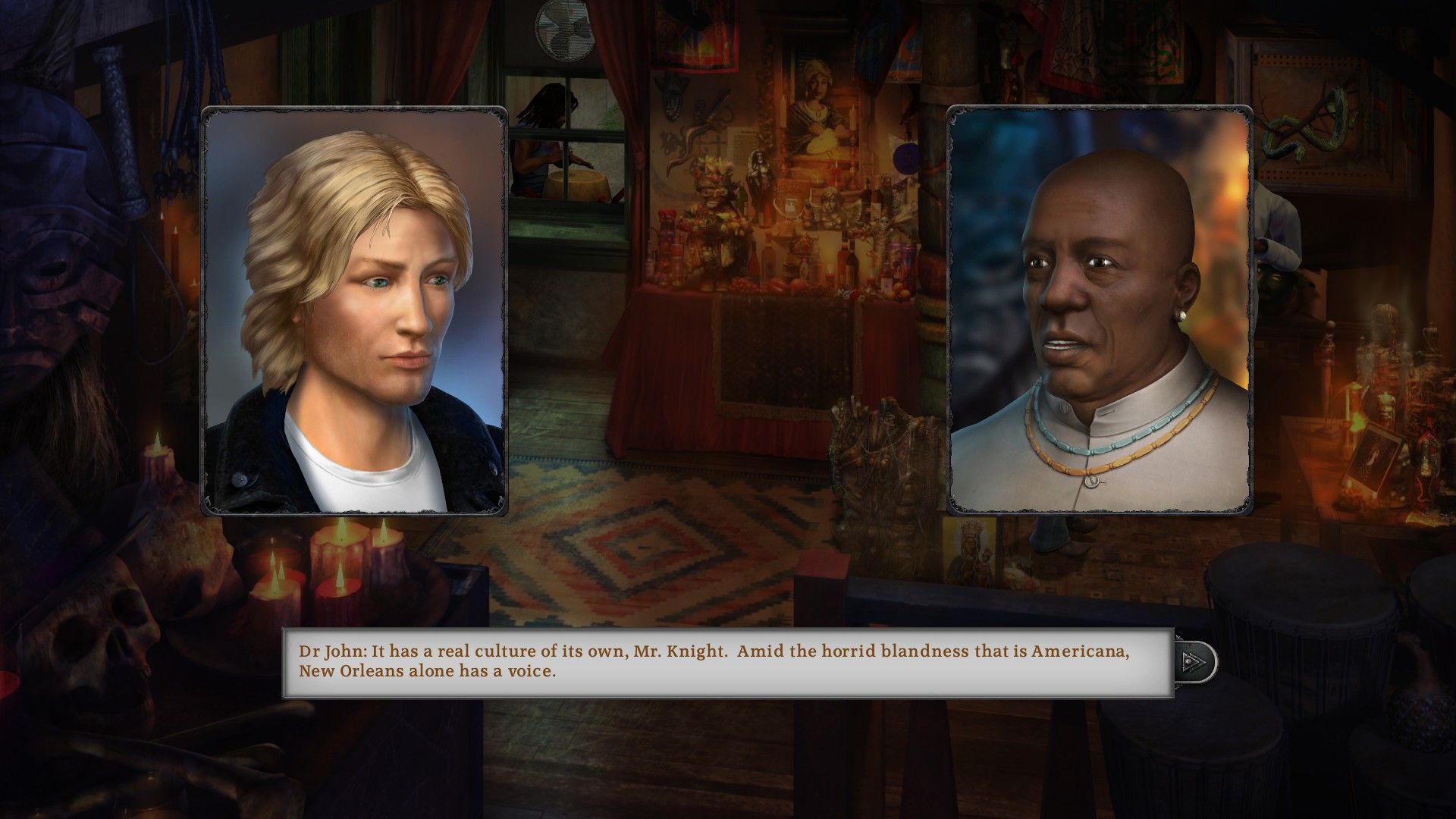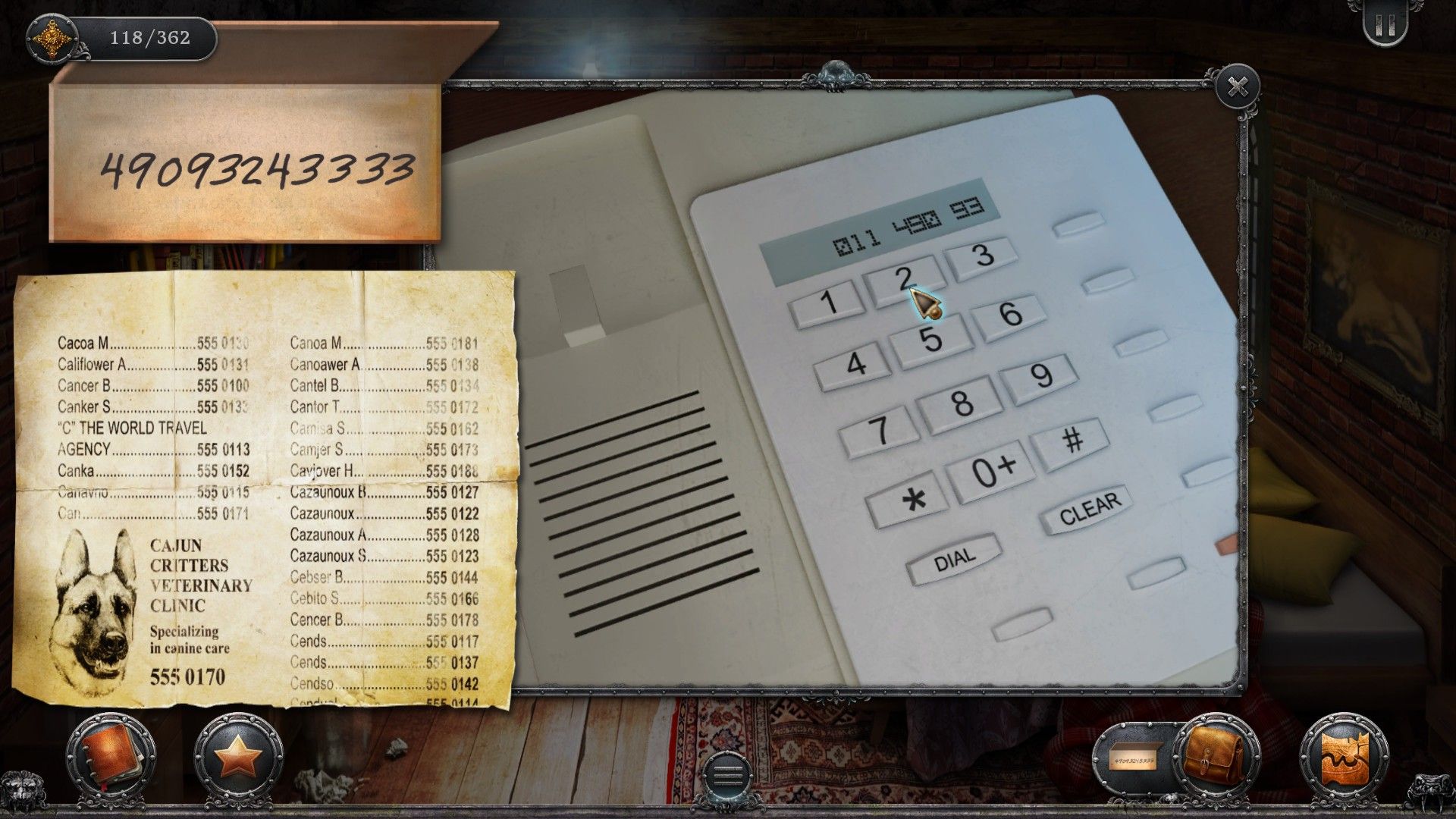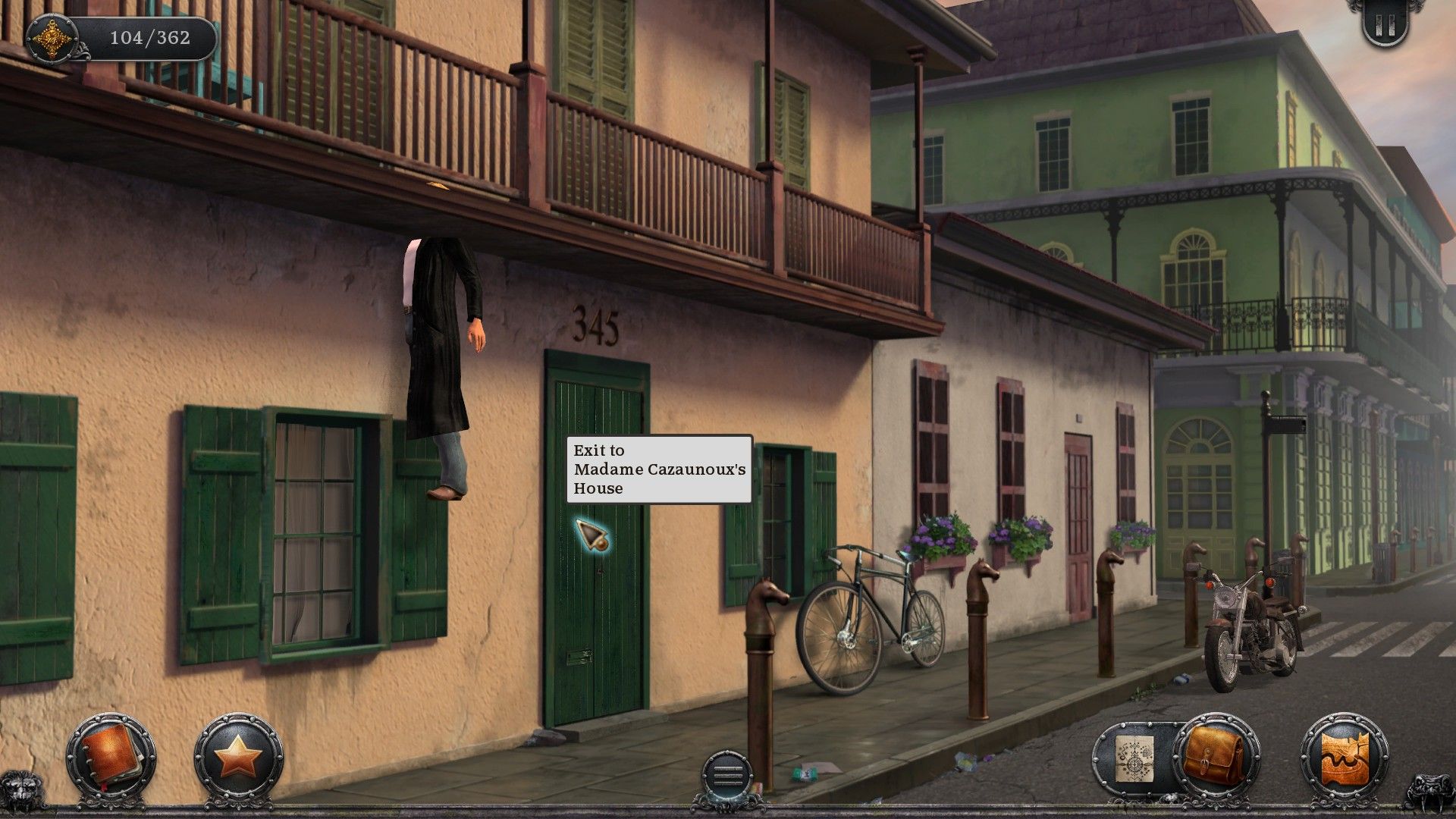Pinkerton Road has an iffy track record in terms of developing games, in much the same way that the historical Pinkertons had an iffy track record in terms of human rights. To be fair, though, that track record consists of only one game, and while they await their UN tribunal for Jane Jensen’s Moebius: Empire Rising, a Jane Jensen Adventure by Jane Jensen, they’ve seen fit to release a second title. This one doesn’t even mention “master storyteller Jane Jensen” until the bottom of its steam blurb. And while that description might seem like hyperbole, it is technically applicable in that Jane Jensen did tell a masterful story that one time back in the ‘90s, and this happens to be that same story repackaged for the new millennium. Gabriel Knight: Sins of the Fathers 20th Anniversary Edition is one of them fancy HD remasters that are all the rage these days, and that's good news, because with one of the greatest adventure games of all time to to serve as their basis, even the team behind Moebius would be hard pressed to churn out a bad game.
I'll be damned if they didn't try their hardest, though.
It's one of the great shames of my career as an adventure game junky that, until this point, I had yet to play any of the Gabriel Knight games. In preparation for this review I did my due diligence and played a bit of each of them, and was pleasantly surprised to find that none of them made me vomit blood. I'm not sure what happened to Jane Jensen between those games and Moebius, but it's safe to say it wasn't a fundamental shift in how she writes characters. As I played through Sins of the Fathers, I couldn't help noticing similarities between Gabriel, an asshole who sells old books for a living and discovers that it's his genetic destiny to fight evil, and Moebius' Malachi, an asshole who sells old furniture for a living and discovers that it's his genetic destiny to rig elections. Even the blatant sexual tension between the protagonists and their secretaries felt eerily familiar.
The difference between Gabriel Knight and Moebius is that the former is well-written (perhaps owing to Jensen's co-writer on the project, Bridget McKenna). Gabriel is an arrogant, womanizing, self-centered idiot, but at least the story is aware of how unlikeable he initially is (instead of treating him like some sort of wholly-justified wunderkind), and as events unfold he actually grows, and even some of his more dickish tendencies become relatable. You actually buy in to his odd charisma, instead of wondering how anyone can make it through a conversation with him without breaking his teeth. The characters around him are also quite charming in their own right, and some lines of dialogue are downright hilarious. I particularly loved it when Gabriel hung a lampshade on the absurdly specific horoscopes that appear in each day’s newspaper, commenting that “there’s a schoolteacher out there who’s mighty confused.”
The mystery the game is built around is also pretty damn compelling. Gabriel's home town of New Orleans is gripped by terror in the wake a spree of gruesome Voodoo Murders, which he of course sees as the perfect fodder for his next book. As he learns more about the nature of voodoo and its historical roots, Knight discovers in himself a remarkable knack for dealing with the supernatural - and eventually finds ties to his own family history. Jane Jensen's has an undeniable talent for blending historical facts seamlessly into fiction, and in playing the game you'll learn an awful lot about the history of the United States and Africa without ever feeling like you're being taught. The story also gets all of the fundamentals of mystery composition right, establishing the villains early without making it too obvious who they are, and feeding you enough clues to let you figure it out ahead of time while also providing plenty of red herrings to keep you guessing. There are also some fine examples of horror done right in the game’s creepier moments.
Writing is the one thing about Sins of the Fathers that would be hard to ruin in a remake, and unsurprisingly it's the one part of the 20th Anniversary Edition that totally holds up. Unfortunately the way the writing is presented isn't quite up to par. The original game had a star-studded voice cast, including Mark Hamil, Jim Cummings, and Tim Curry. Of course the compressed audio from the old floppy disks can't be re-used, and apparently nobody thought to save the master recordings of that top-tier talent, so for this (low-budget) remake Pinkerton Road had no choice but to recast the game entirely. The cast they've picked is, on the whole, decent (though some of the attempts at cajun accents are embarrassing, and Knight sounds like a bad Elvis impersonator), but they can't really compare to Hollywood talent.
The remastered music is also a little hit-and miss. Some tracks are subtle and atmospheric, and translate well from the MIDI bleeps and bloops of the original game to high-quality MP3s. On the other hand, certain more bombastic or humorous songs sound downright goofy given proper orchestration. To the soundtrack's credit, it is very faithful to the original, but not everything that works in 16-bit synth translates well to real instruments, and some compositional changes would have helped significantly in the transition. For the most part the soundtrack is good - even excellent - but when it suddenly isn't it can be extremely distracting. Likewise, the happy jingle that plays whenever you earn a point can completely ruin the mood of some scenes, though that too is true to the original game.
The Gabriel Knight series has the rare distinction of looking substantially worse with each progressive installment. Gabriel Knight 3: Blood of the Sacred, Blood of the Damned (in addition to having an unwieldy subtitle) was a tragic victim of the CG craze of the late '90s, with near-featureless environments and stiff character models that resemble human beings the same way that a dating sim resembles the touch of a woman. It looked atrocious even next to the FMVs of The Beast Within: A Gabriel Knight Mystery, and that looked more like a cheap student film than a commercial video game. They both pale in comparison to the original, a dark, moody, classic 2D adventure that made every one of its limited pixels count. Sins of the Fathers 20th Anniversary Edition doesn't look nearly as heinous as either of the Gabriel Knight sequels, but the HD coat of paint it applies to the original game turns out to be more of a downgrade than an upgrade.
This is largely the fault of the Phoenix Online Studios engine (also used in Moebius and Cognition), which is, to put it kindly, atrocious. While it's nice to see a modern game engine make use of pre-rendered backgrounds and 3D character models, the backgrounds used by the engine are often straight-up broken with bizarre clipping and scaling issues, and the character models wouldn't look out of place in Gabriel Knight 3. It's also becoming blatantly obvious that nobody at Pinkerton Road can animate worth a damn either, as the characters here are just as stiff and awkward as anything in Moebius - though the game at least has the decency to only show them from a distance instead of subjecting us to their dead-eyed puppet faces up-close. The engine also handles skipping dialogue in a very off-putting way, speeding up the entire game clock instead of just cutting characters off. I understand that this is done to avoid messing up character blocking, but it results in weird, twitchy animation spasms and an abundance of graphical glitches. That said, I kind of wish that it were possible to skip the non-talking parts of cutscenes, as waiting for Gabriel to put on his coat, or for an old lady to totter across a room and sit down can be inexorable.
A crappy engine isn't the game's only visual problem, though. The original Sins of the Fathers was absolutely drenched with atmosphere, and its backgrounds made great use of light and shadow to create a gritty, unnerving mood. The repainted backgrounds, meanwhile, showcase all the aesthetic sense of your average hidden object game – which is to say none at all. Scenes are frequently cluttered, and almost every area in the game is too bright and colorful for its own good. The artist behind this seems to have no concept of mood lighting or composition. You’d get more out of your HD monitor by playing the original game than by subjecting your eyes to this.
I will say two points in favor of the remake’s visuals. Firstly, the motion comic cutscenes look fantastic, and whoever painted them had a real sense for the game’s mood. If the backgrounds had been hand-painted by that artist instead of simply being rendered to look “realistic” I dare say this game could have been gorgeous. Secondly, the game makes use of animated 2D “talking heads” for dialogue scenes, which are built from multiple motion-tweened layers and seemingly rigged up like a 3D model. It’s a technique I haven’t really seen before, and though the character portraits aren’t very expressive and their motions are a tad unnatural, their lip-synching is very impressive. With a bit more polish this could be a very effective and cheap way of handling dialogue in future games.
As far as gameplay goes, for better or worse, Sins of the Fathers 20th Anniversary Edition is largely identical to the original game. Gabriel Knight is hailed more for its story than its puzzle design, and a number of the game’s scenarios are on the frustrating and obtuse end of the adventure game spectrum. A few puzzles have been changed for the sake of pacing and realism (and in a couple of cases to add boring sliding panel and hidden object screens), but most of them have made the transition to HD untouched. This includes exercises in tedium such as dialing numbers on Gabriel’s phone, which must be done individually using the mouse (allowing a half-second pause after every click) instead of with the keyboard number pad, or a menu with numbers programmed into it – or just about any other conceivable option. To make matters worse, Gabriel will sometimes be arbitrarily unwilling to make a call you’ve dialed, which feels like a slap in the face after punching in a 14-digit international number.
One thing that has changed a lot is the game’s interface, though not in all the ways it needed to. The inventory system is a lot smoother than it was in the original game, allowing you to see every item you have at once instead of having to scroll through them. You no longer have to cycle through various pointer options either, which is a nice concession to modernity, although using a radial actions menu isn’t much better. Older developers need to get it through their heads that point-and-click interfaces have been streamlined and standardized over the years – left click should interact (which covers talking, picking up, or using an object) while right click examines, and clicking after selecting an inventory item should make you use that item with whatever you’re clicking. There’s no need to have several nearly identical options, and a few silly jokes about “picking up” women do not make this archaic interface design worthwhile.
These retro sensibilities can make the game feel tedious at times, especially when you have to repeat sections due to a bug. Sins of the Fathers crashed on me nine times over the course of my playthrough, at one point autosaving into a glitched state where plot-necessary items were inaccessible. At least an hour of my total playtime was dedicated to recovering lost progress, which is not good in a game that already feels padded. I suppose it’s a testament to the quality of the story that I finished the game in spite of this, but at most points I just found myself wishing I were playing the original version.
Closing Comments:
Gabriel Knight: Sins of the Fathers is a good point and click adventure game, and its 20th Anniversary Edition is a very bad port. Technical issues abound, the high-definition graphics look far worse than their DOS forebears, and nearly every change that’s been made is for the worse. There is some nice special edition content in the package, including concept art and interview clips, but the fans who will appreciate those features will likely be turned off by everything the remake does wrong. Gabriel Knight is absolutely a must-play game, but this is the absolute worst way to play it.
Platform: PC


